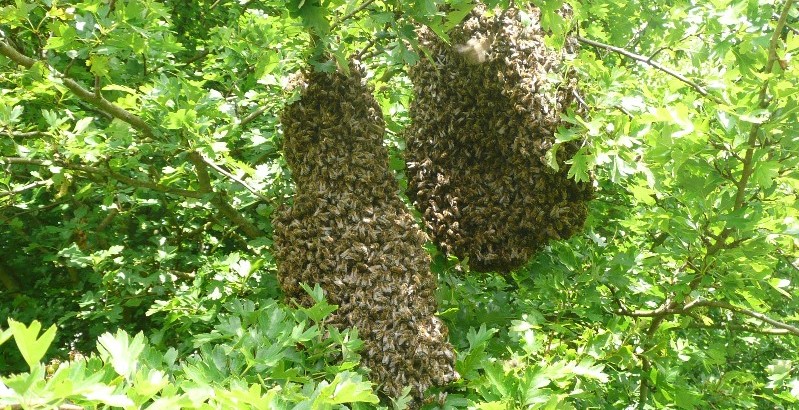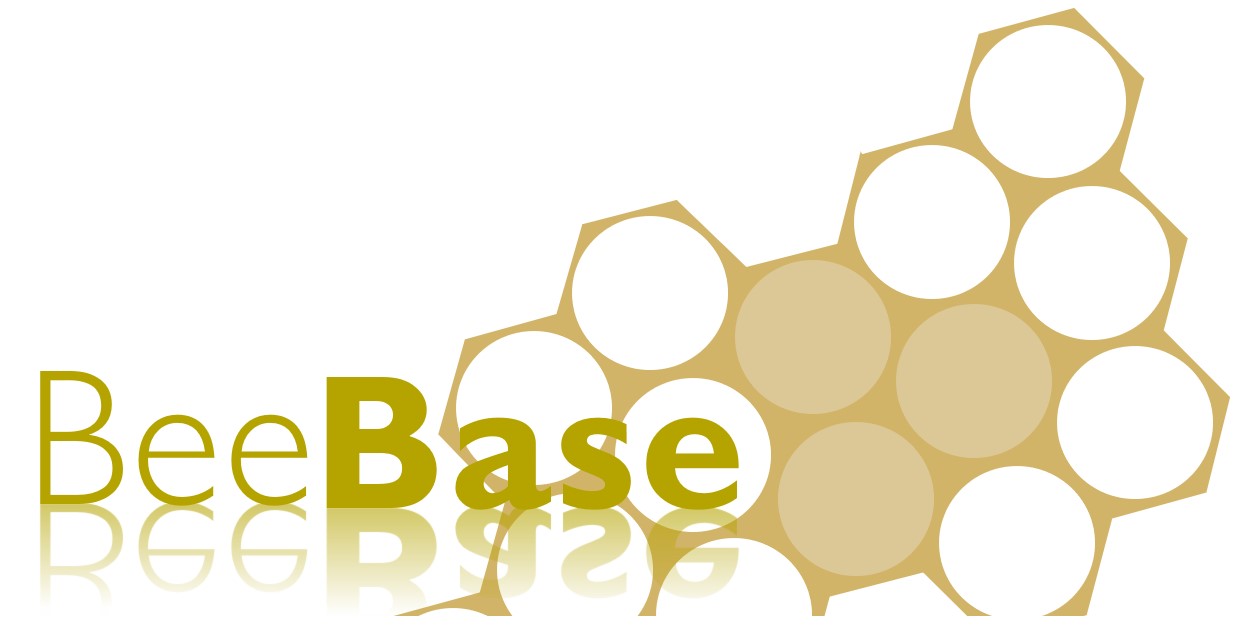What to do if you find a Swarm?
You may occasionally come across a swarm of honey bees e.g. in your garden. If the swarm is a nuisance and you want it removing, in the first instance you should contact a local swarm collector to see if they are prepared to come and collect the swarm. The British Beekeepers Association (BBKA) hold a list of swarm collectors.
For more information on swarms and swarm collection, please see the BBKA Website.
Alternatively, if you live in Wales then more information regarding how to contact a swarm collector in your area can be found on the Welsh Beekeepers Association website.

Feral Bees?
Should you destroy a honey bee nest?
When asked to destroy a feral honey bee colony, a careful assessment should be made about whether people have been stung by bees from the colony and whether people are at risk because of its location? If the colony is not causing any risk to public health then alternative measures should be carefully considered before carrying out a destruction.
NB. Many buildings have had honey bee colonies in their cavities for many years, without the bees causing any disturbance or problems to the property owner. If the colony poses no danger to public health, and are not causing a nuisance or a threat, they can be left alone.
As a member of the public, it would be better to consult a Pest Controller or beekeeper, rather than attempting to treat the colony yourself.
What products can be used?
We cannot recommend any specific products, however, there is a wide selection of biocides available, and these may be found in local DIY/hardware stores and supermarkets. Ensure that it specifies the product can be used on feral bees, this information can usually be found on the back of the label.
Information about using biocides can be found on the Health and Safety Executive (HSE) website.
What precautions should be taken when carrying out a honey bee nest treatment?
If you consider treatment is the best option, make use of the British Beekeepers Association's spray liaison scheme. Here, a Spray Liaison Officer will ring all known local beekeepers and warn them that a spraying incident will be taking place. It is important for you to talk to local beekeepers before treating a colony so that all the risks to surrounding hives can be discussed.
Remember, members of the Beekeeper Associations may be able to provide advice and will sometimes remove accessible feral honey bee colonies, avoiding the need to use biocides.
Only use an HSE approved insecticide, ensuring that you always read and follow the label. Do not deviate away from the instructions. Ensure that you use the product responsibly and safely.
Once the treatment is complete, you should take every reasonable precaution to prevent foraging honey bees from gaining access to the treated nest, by removing the combs if possible, or by blocking all known entrances to the colony.
If you have a feral bee colony in your building and you have been advised that they need to be destroyed, see the code of practice written by the National Pest Technician Association (NPTA): Guidance for Pest Controllers.
